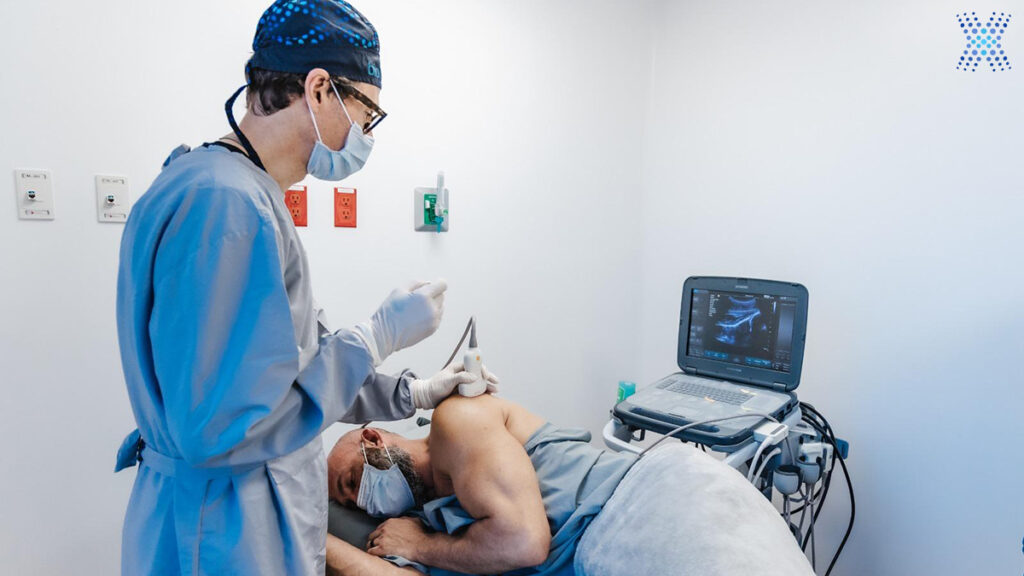
Stem cell therapy, known as Mesenchymal Stem Cell (MSC) Therapy, is becoming more popular for treating immune and inflammatory diseases. This is because there is growing evidence that it can help with problems like rejection of transplants, autoimmune diseases, joint pain and even lung and liver problems caused by inflammation.
In the past, doctors only used a patient’s own stem cells, but now they are using stem cells from donors, which are readily available and don’t require waiting. There are also new treatments like exosomes, tiny parts of cells, and stem cells made from human cells that show promise in helping even more people.
Many clinical trials have been done to test the safety of MSCs and so far, the results have been positive. Although more research is needed to see how well it works for specific conditions, there is already some evidence that it can help with diseases that cause inflammation, like joint pain and autoimmune diseases.
A study, Advances in mesenchymal stem cell therapy for immune and inflammatory diseases: Use of cell-free products and human pluripotent stem cell-derived mesenchymal stem cells, looked into the overall potential of stem cell therapy to treat inflammation.
Results of the Study
The study summarized the data and clinical trials around various conditions.
Graft-vs-Host Disease
MSC therapy was first used to treat a child with a serious immune problem called Graft-vs-Host Disease (GVHD) after a bone marrow transplant. This treatment was successful and led to more research and trials for GVHD and other transplant rejections. There have been many trials for GVHD and other transplant rejections using MSCs with positive results. Some trials used MSCs from the patient’s own bone marrow, while others used MSCs from donors.
Several trials, including two Phase 3 trials, have seen significant therapeutic efficacy and safety for GVHD using intravenous infusion of allogeneic bone-marrow MSCs. A Phase 1 trial even showed success in using allogeneic iPSC-MSCs for steroid-resistant acute GVHD. For organ rejection, autologous bone-marrow MSCs have been used in seven studies with immunosuppressive drugs, demonstrating safety and some efficacy. For allogeneic MSCs, Wharton’s Jelly umbilical cord MSCs have been reported to successfully prevent both delayed graft function and acute rejection in renal transplantation. All these results show that MSCT is safe, and may be a viable option for you or a loved one dealing with graft rejection.
Autoimmune Diseases
Autoimmune diseases happen when your body’s immune system starts attacking your own cells and organs. This can cause inflammation and injury in different parts of your body. Scientists have discovered that a certain type of cells called CD4/helper T cells play a big role in autoimmune diseases.
Over 25% of all trials using MSCs are for autoimmune diseases like inflammatory bowel disease, multiple sclerosis, type 1 diabetes, systemic lupus erythematosus, rheumatoid arthritis, psoriasis, and others. Most of these trials are still in early stages, but there are a few ongoing trials to see if MSCs are effective. So far, most of the trials have used either bone marrow mesenchymal stem cells (BMMSCs) or Wharton’s jelly derived umbilical cord mesenchymal stem cells (WJUC).
Some trials are also using other types of MSCs like adipose (fat) derived mesenchymal stem cells (AdMSCs) or umbilical cord blood mesenchymal stem cells (UCBMSCs). Most trials use MSCs from other people (allogenic), but there are a few that use your own cells (autologous). There are even two trials comparing different sources of MSCs to see which one is more effective.
There have been 26 published studies about using stem cells to treat autoimmune diseases. The most promising results have been for Inflammatory Bowel Disease (IBD) and Multiple Sclerosis (MS), where patients received stem cells through injections or intravenously, and saw improvement in their symptoms. The results for other autoimmune diseases such as Rheumatoid Arthritis (RA), Type 1 Diabetes (T1DM), Systemic Lupus Erythematosus (SLE), and psoriasis have been mixed and need further research.
Increasingly, people are finding success with this type of therapy because of its unique regenerative and immunomodulatory characteristics. With more research being conducted on cell-free products and iPSC-MSCs as well as tissue-specific differences in MSC sources, the results of MSCT are set to improve even further in the near future. With this new advancement in medical technology, a world full of hope awaits those affected by inflammatory and immune diseases.

